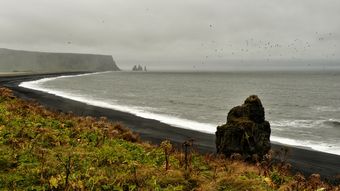Publikace, nahrávky a jiné výstupy
Přehled toho, co jsem napsal a zveřejnil (jako sociolog) nebo nahrál a vydal (jako muzikant). Prostě veřejně dostupné "výstupy". V případě, že je to právně a technicky možné, postupně sem dávám k dispozici i plné texty a do příslušných oddílů hudební sekce pak i nějaké hudební ukázky ve formátu mp3.
KONOPÁSEK, Z. (2024 - v tisku): Sbohem příteli, naše cesty se rozešly: O interpretativní analýze, počítačích a programu ATLAS.ti. Biograf (78), 56 odst. Dostupné na adrese http://www.biograf.org/
::::Diskutuji současné trendy v používání počítačů při analýze kvalitativních dat, zejména zavádění umělé inteligence (AI). Zaměřuji se přitom především na program ATLAS.ti. V rámci závodů, který z CAQDAS programů nabídne lepší využití AI, jsou osvědčené metodologické postupy těchto programů nenápadně, ale možná nenávratně vytlačovány technicky zaměřenými novinkami, které zatím přinášejí jen velmi nejisté výsledky. Příkladem budiž filtr úryvků podle toho, zda jsou komentované, který se nedávno z programu ATLAS.ti vytratil. Vysvětluji zásadní důležitost tohoto filtrování. Ukazuji analytický postup jako specifické praktiky čtení/psaní a kritizuji přehnaný důraz na kódování v kvalitativní analýze.
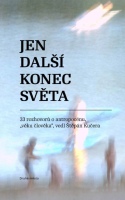
KONOPÁSEK, Z. (2024): Ať spolu vědci dál nesouhlasí. In: Š. Kučera, ed: Jen další konec světa: 33 rozhovorů o antropocénu, "věku člověka", vedl Štěpán Kučera. Brno: Druhé město. Str. 116-122
::::Bojí se sloni smrti? Cítí stromy bolest? Proč si tak rádi vyprávíme o koncích světa? Proč náš jazyk nestačí k popsání výzev dnešní doby? A jakou roli v tom všem hrají vědci? I takové otázky pokládal spisovatel a novinář Štěpán Kučera v rozhovorech, které vycházely od roku 2017 v Salonu Práva.
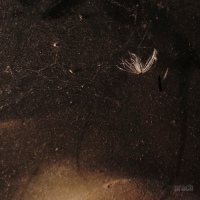
NOČNÍ PTÁK (2024): Prach. Polí5
::::V roce 2023 mávnul Noční pták opět perutěmi, a to při letním soustředění v Albeři. Během tohoto mávnutí se 5. 8. uskutečnil veřejný koncert (viz video Kryštofa Ziky
youtu.be/8dnVJKTkqVA Polí5
) a o 2 dny později neveřejné nahrávání s ambicí zachytit a rozvinout témata a nápady, které zazněly při improvizacích během koncertu. Výsledkem je album PRACH.
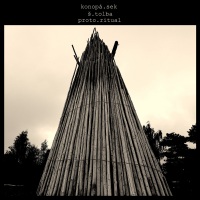
ZDENĚK KONOPÁSEK & JAN ŠTOLBA (2024): Protorituál. Polí5
::::Jan Štolba a Zdeněk Konopásek spolu kdysi dávno hráli v Kvartetu dr. Konopného, tedy v kapele, kterou vedl herec, performer a "poslední pražský bohém" Radomil Uhlíř. Když se pak po mnoha letech potkali na Uhlířově pohřbu, v roce 2019, domlouvali setkání. K tomu nakonec došlo až v květnu 2023. Pustili se do hraní bez jakékoli přípravy a všechno pokusně a svépomocně nahráli. Zdejší album je takřka úplným záznamem toho hudebního odpoledne.

ŽENY & ORKESTAR (2024): Kasárna Karlín. Polí5
::::
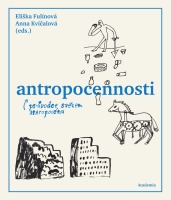
KONOPÁSEK, Z. & ŘÍHA, C. (2024): Letáčky. In: E. Fulínová & A. Kvíčalová, ed: Antropocennosti: Malý průvodce světem antropocénu. Praha: Academia. Str. 73-83
::::Letáčky CHKO nejsou žádná antropocénní ikona, přesto o tomto fenoménu vypovídají. Ukazují, že nežijeme jen v době bezprecedentního ničení přírody, krajiny či kulturních památek, ale také dosud nebývalých ochranných opatření. Nejde přitom jen o akci a reakci. Nerozšiřuje se totiž jen počet chráněných exemplářů, lokalit, ale i typů toho, co předmětem ochrany je. Přitom se zvyšuje naléhavost otázky, co vlastně chráníme a před kým. Antropocén je nejen fyzický stav současného světa, ale i způsob, jak o něm mluvíme. K jeho charakteristice patří jak obecně to, že o něm čím dál více uvažujeme v režimu ochrany, regulace, tak i to, na co konkrétně je tato ochrana zaměřena.
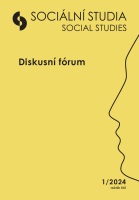
KONOPÁSEK, Z. (2024): Věda a politika, vpravo, vlevo. Sociální studia, 21 (1): 33-38. Dostupné na adrese: https://doi.org/10.5817/SOC2023-33647
::::Pavel Barša svůj text "Pragmatická sociologie emancipace: Latour vs. Boltanski" pointuje úvahami o tom, že Latourovi není blízká ani revoluční levice, ani krajní konzervatismus. Pomáhá si přitom zejména tím, že ho brání před tím, co jsem nedávno napsal o jedné Latourově knize. Podle Barši v tomto textu Latourovi vyčítám jeho politické angažmá. Kritizuji ho za příklon k levici a odkazuji ho do sféry čisté, akademické vědy. Avšak přestřelil jsem prý… Problém je v tom, že mi Barša vkládá do úst, co jsem nikdy neřekl. Latourovi jsem nikdy nevyčítal politický rozměr jeho textů. Už vůbec jsem mu nevyčítal levicovost. A rozhodně mi nejde o to ho „skolit“. Ještě bizarnější ale je, že ten, kdo mi falešně podsouvá kritiku Latoura kvůli tomu, že se ukázal jako „levičák“, mne otevřeně kritizuje kvůli tomu, že jsem se ukázal jako „pravičák“ (je to totiž právě tahle škatulka, která dle Barši vysvětluje moje omyly a mou údajnou nenávist vůči Latourovi). V textu se snažím obhájit, že cit pro jemnost a ambivalence není nic výlučně akademického a že „relativistické“ uvažování je ještě něco jiného než jen výhodné palivo pro konzervativní agendu (jak naznačuje Barša).
KONOPÁSEK, Z. (2023): aTrain, převod nahrávek mluvené řeči na text s využitím AI. Biograf (77), 21 odst. Dostupné na adrese http://www.biograf.org/clanek.html?id=1109
::::Představuji nový program vhodný pro kvalitativní výzkumníky, který automaticky přepisuje nahrávky do textu. Využívá k tomu transkripční model Whisper z dílny OpenAI. Přepisy citlivě vyvažují přesnost a čitelnost, kvalitou předčí výsledky práce většiny najatých lidských přepisovačů. Zvláštní výhodou pro kvalitativní výzkum je, že program neposílá data nikam ke zpracování; vše se odehrává na lokálním počítači.
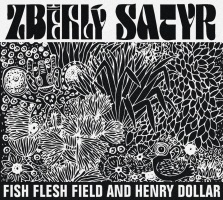
Album s písněmi na texty Milana Kozelky.
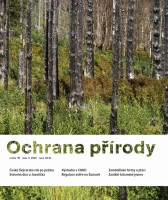
PRACH, J. / KONOPÁSEK, Z. / ŘÍHA, C. (2023): Jak stavět v krajině: Návrh webové aplikace na podporu usměrňování stavební činnosti v CHKO. Ochrana přírody, 78 (6): 26-29. Dostupné na adrese https://www.casopis.ochranaprirody.cz/
::::Regulace výstavby v chráněných územích s cílem zachování krajinného rázu je důležitou agendou orgánů ochrany přírody. Agenda vyvolává mezi občanem-stavebníkem a úřadem řadu pnutí. V článku přinášíme výsledky projektu TAČR, který jsme představili před dvěma lety. Výstupem projektu je webová aplikace, která místní kvality krajinného rázu a principy, resp. regulativy z nich plynoucí, pojednává kontextově citlivým způsobem a přístupnou formou. Vychází z Preventivních studií hodnocení krajinného rázu, která AOPK ČR pro jednotlivé CHKO pořizuje. Webové rozhraní umožňuje generovat tisknutelný dokument přímo na míru. Aplikace by měla přispět k lepšímu pochopení diferencovaného přístupu – proč je obdobný stavební záměr v některých částech CHKO nežádoucí a v jiných částech CHKO nepředstavuje problém.
